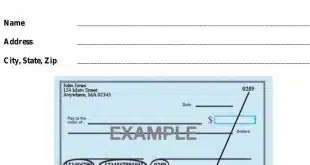Visa Inc. this week announced it would permit the widespread issuance of unembossed consumer credit and debit cards and business debit cards. In doing so, Visa played up the advantages to issuers, including less-complex supply-chain management, quicker activation, the ability to issue cards to customers in person at bank and credit-union branches. It also said cardholders could more easily personalize their new cards. But there's another advantage that comes from reducing the typical five to 10 business-day time it takes under conventional procedures to get a card produced and mailed to a new customer after account approval: interchange income. The extra interchange in that time period can more than compensate for the cost of outfitting branches with card-personalization machines, according to Ron Zanotti, vice president of Englewood, Colo.-based Dynamic Card Solutions LLC, a manufacturer of software called CardWizard for instant-issuance devices. The company also provides the devices, dubbed the FCP 20/20, through a third-party manufacturer. A properly equipped magnetic-stripe card printer with personalization capabilities can cost $8,000, and one that can also handle chip cards such as MasterCard Inc.'s PayPass or Visa's Pay Wave may cost $10,000 according to Zanotti. But if banks depreciate the equipment over five years, as they often do with other equipment such as ATMs, the cost comes out to less than $10 a day. If the issuer's debit card portfolio is generating about 20 transactions per month, an extra five to eight interchange-generating transactions could be captured per card. That means, according to Zanotti, that just two new accounts a month generating an average of 50 cents in interchange per transaction would pay for the equipment. “It's a no brainer, it really is,” he says. In-branch issuance gives bank and credit-union issuers the opportunity to not only get cards into their customers' hands fast, but it also lets cardholders upload pictures and personalized graphics onto their cards. And it gives the issuer a chance to educate cardholders about usage, Zanotti says. That includes selling cardholders on the idea of using a debit card when they otherwise would write a check at the point of sale?and using the signature function for purchases rather than the PIN-based function. The former, of course, generates more interchange for issuers. The embossing of cards started decades ago so that sales receipts would show the cardholder's name and account number after a card with raised letters and numbers was run through a manual imprinter. With electronic authorization and draft capture now nearly universal in the U.S., very few cards are slid through imprinters any more, largely rendering the embossing function obsolete. Visa has permitted unembossed prepaid cards in the U.S. since 2005. The network said its recent move comes after tests with a dozen U.S. issuers, including Commerce Bancshares Inc., TD Banknorth, and United Heritage Credit Union. “Being able to instantly provide members with Visa cards has helped us drive activation, usage, and loyalty while reducing costs,” Michael Ver Schuur, executive vice president at United Heritage, said in a statement. “Not only that, our cardholders felt secure receiving their cards directly at the branch and enjoyed the ability to access their accounts conveniently right away.” A Visa spokesperson did not immediately have data about how many unembossed prepaid cards have been issued. In a statement, MasterCard Inc. said it “already is allowing the issuance of unembossed cards around the globe. Moreover, we have security guidelines in place for instant card issuance. As such, we continue to explore additional ways to meet the needs of all of our stakeholders, including consumers, merchants and issuers.” The number of unembossed MasterCard cards in issue wasn't available. Dynamic Card Solutions recently announced that it has 400 customers, and Zanotti believes Visa's new policy will drive more business its way. “It already has,” he says. “It's unbelievable.”
Check Also
After Some Fixes, PayPal Says It Has Surpassed $30 Billion in Loan Originations
Trumpeting its financing services for small and mid-size businesses, payments giant PayPal Holdings Inc. disclosed …




